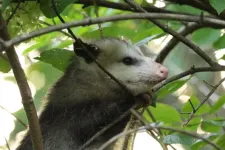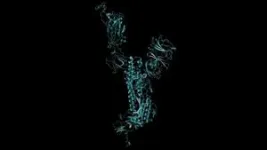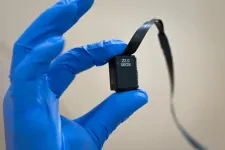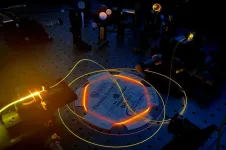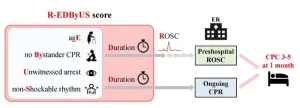SARS-CoV-2, the virus responsible for COVID-19, is widespread among wildlife species, according to Virginia Tech research published Monday (July 29, 2024) in Nature Communications. The virus was detected in six common backyard species, and antibodies indicating prior exposure to the virus were found in five species, with rates of exposure ranging from 40 to 60 percent depending on the species.
Genetic tracking in wild animals confirmed both the presence of SARS-CoV-2 and the existence of unique viral mutations with lineages closely matching variants circulating in humans at the time, further supporting human-to-animal transmission, the study found.
The highest exposure to SARS CoV-2 was found in animals near hiking trails and high-traffic public areas, suggesting the virus passed from humans to wildlife, according to scientists at the Fralin Biomedical Research Institute at VTC, the Department of Biological Sciences in Virginia Tech’s College of Science, and the Fralin Life Sciences Institute.
The findings highlight the identification of novel mutations in SARS-CoV-2 in wildlife and the need for broad surveillance, researchers say. These mutations could be more harmful and transmissible, creating challenges for vaccine development.
The scientists stressed, however, that they found no evidence of the virus being transmitted from animals to humans, and people should not fear typical interactions with wildlife.
Investigators tested animals from 23 common Virginia species for both active infections and antibodies indicating previous infections. They found signs of the virus in deer mice, Virginia opossums, raccoons, groundhogs, Eastern cottontail rabbits, and Eastern red bats. The virus isolated from one opossum showed viral mutations that were previously unreported and can potentially impact how the virus affects humans and their immune response.
“The virus can jump from humans to wildlife when we are in contact with them, like a hitchhiker switching rides to a new, more suitable host,” said Carla Finkielstein, professor of biological sciences at the Fralin Biomedical Research Institute at VTC and one of the paper’s corresponding authors. “The goal of the virus is to spread in order to survive. The virus aims to infect more humans, but vaccinations protect many humans. So, the virus turns to animals, adapting and mutating to thrive in the new hosts.”
SARS CoV-2 infections were previously identified in wildlife, primarily in white-tailed deer and feral mink. The Virginia Tech study significantly expands the number of species examined and the understanding of virus transmission to and among wildlife. The data suggests exposure to the virus has been widespread in wildlife and that areas with high human activity may serve as points of contact for cross-species transmission.
“This study was really motivated by seeing a large, important gap in our knowledge about SARS-CoV-2 transmission in a broader wildlife community,” said Joseph Hoyt, assistant professor of Biological Sciences in Virginia Tech’s College of Science and corresponding author on the paper. “A lot of studies to date have focused on white-tailed deer, while what is happening in much of our common backyard wildlife remains unknown.”
The research team collected 798 nasal and oral swabs across in Virginia from animals either live-trapped in the field and released, or being treated by wildlife rehabilitation centers. The team also obtained 126 blood samples from six species. The locations were chosen to compare the presence of the virus in animals in sites with varying levels of human activity, from urban areas to remote wilderness.
The study also identified two mice at the same site on the same day with the exact same variant, indicating they either both got it from the same human, or one infected the other.
Researchers are not certain about the means of transmission from humans to animals. One possibility is wastewater, but the Virginia Tech scientists believe trash receptacles and discarded food are more likely sources.
“I think the big take home message is the virus is pretty ubiquitous,” said Amanda Goldberg, a former postdoctoral associate in Hoyt’s lab, who is the study’s first author. “We found positives in a large suite of common backyard animals.”
While this study focused on the state of Virginia, many of the species that tested positive are common wildlife found throughout North America. It is likely they are being exposed in other areas as well, and surveillance across a broader region is urgently needed, Hoyt said.
“The virus is indifferent to whether its host walks on two legs or four. Its primary objective is survival. Mutations that do not confer a survival or replication advantage to the virus will not persist and will eventually disappear,” said Finkielstein, who is also director of the Virginia Tech Molecular Diagnostics Lab. The Roanoke lab was established in April 2020 to expand COVID-19 testing.
“We understood the critical importance of sequencing the genome of the virus infecting those species,” Finkielstein said. “It was a monumental task that could only be accomplished by a talented group of molecular biologists, bioinformaticians, and modelers in a state-of-the-art facility. I am proud of my team and my collaborators, their professionalism, and everything they contributed to ensure our success.”
Surveillance for these mutations should continue and not be dismissed, the scientists said. More research is needed about how the virus is transmitted from humans to wildlife, how it might spread within a species, and perhaps from one species to another.
“This study highlights the potentially large host range SARS-CoV-2 can have in nature and really how widespread it might be,” Hoyt said. “There is a lot of work to be done to understand which species of wildlife, if any, will be important in the long-term maintenance of SARS-CoV-2 in humans.”
“But what we’ve already learned,” Finkielstein said, “is that SARS CoV-2 is not only a human problem, and that it takes a multidisciplinary team to address its impact on various species and ecosystems effectively.”
Written by Matt Chittum/Virginia Tech
END
